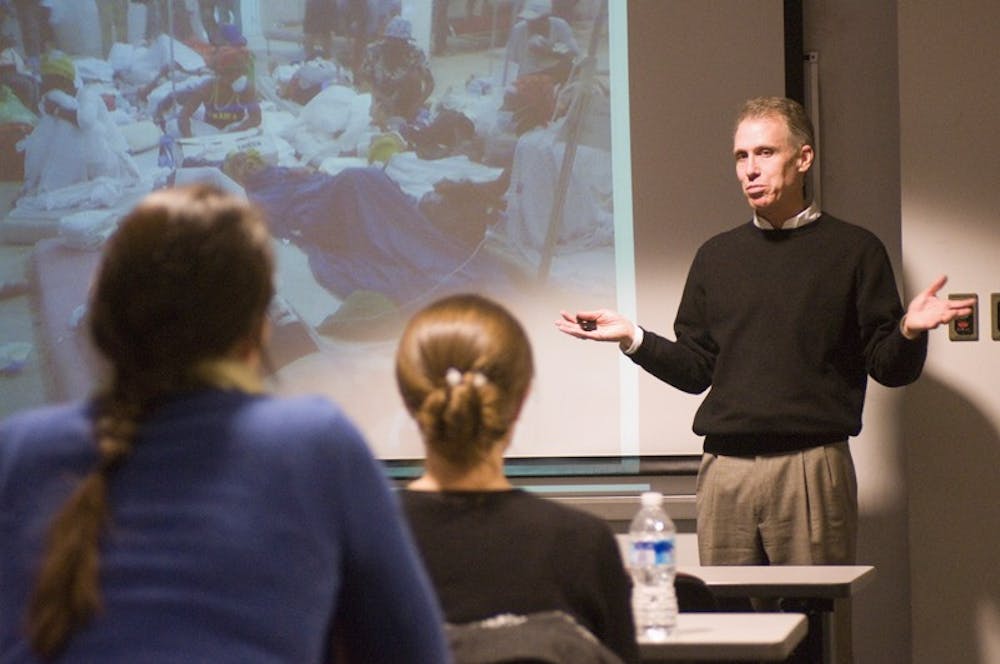In a special event for students enrolled in the global public health minor yesterday night, Dr. William Maloney, who completed his residency at the University, discussed his experiences helping victims of the Jan. 12 Haitian earthquake. After joining a Lutheran group, flying to a hospital in Jimani in the Dominican Republic and then driving to Port-au-Prince, he helped treat victims within a week of the initial earthquake.
The severely injured were transported from Port-au-Prince to the hospital in Jimani, where doctors and medical supplies were available.
"What struck me was that it was total chaos," Maloney said. "There were so few doctors and resources and no time to organize everything."
Eventually, they developed a system; each of the rooms were labeled and each mattress was numbered. Most of the injuries were the result of falling rubble - crushed femurs, spines and pelvises. Frequently, wounds became infected and required treatment.
The extent of their injuries kept many Haitians from moving from the site of the injury, Maloney said.
The lack of interpreters made it difficult to communicate with the patients, as well.
"We were just feeling down their bodies to figure out what was wrong with them," Maloney said.
He was particularly motivated to help the victims because of the way in which they handled the crisis, he said.
"The Haitians were so stoic," he said. "Some had been suffering with displaced fractures for a week and they never said anything or complained about the pain, even when they were being moved."\nVictims often were moved to less than ideal conditions. On hospital property, a building previously used as an eye-treatment center for cataracts had the potential to serve as four to five operating rooms. A group called "Operation Rainbow" came down and provided the necessary medical equipment for operating rooms to be used. The chapel was turned into the patient care ward, and a few trailers from Puerto Rico were turned into intensive care units.
Despite these conditions, Maloney witnessed many groups of people mobilize to help.
"We had students; we had people that were just traveling in the Dominican Republic, and they helped with carrying people, getting water and food to the people and sometimes even helping with the dressings," Maloney said.
Asst. Medical Prof. Rebecca Dillingham, said







